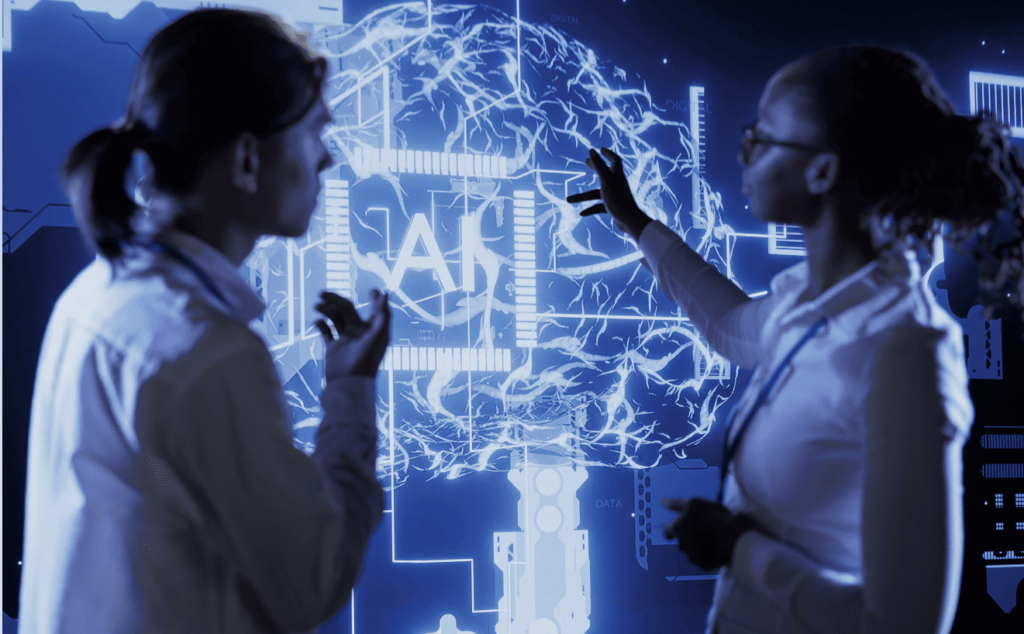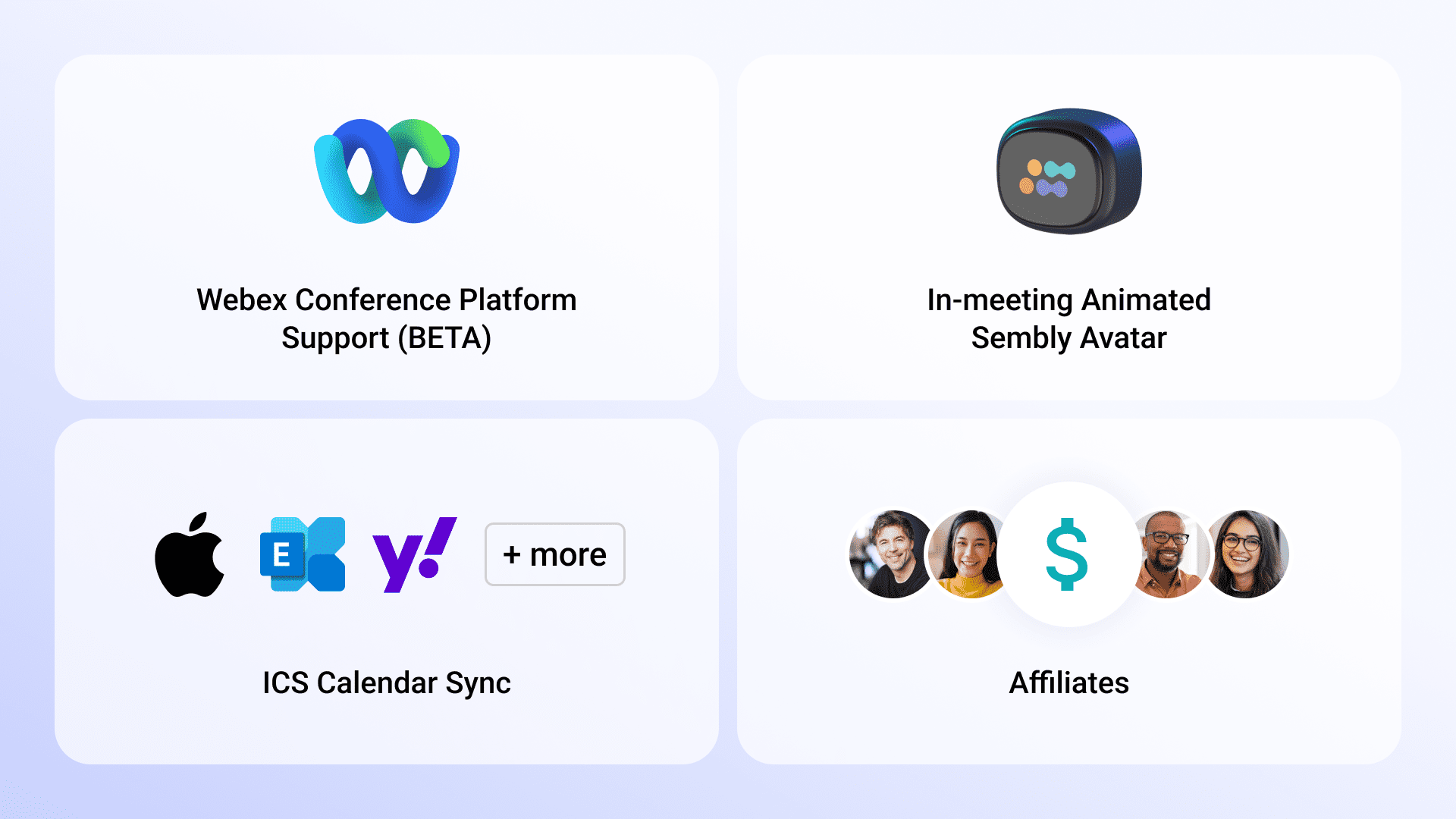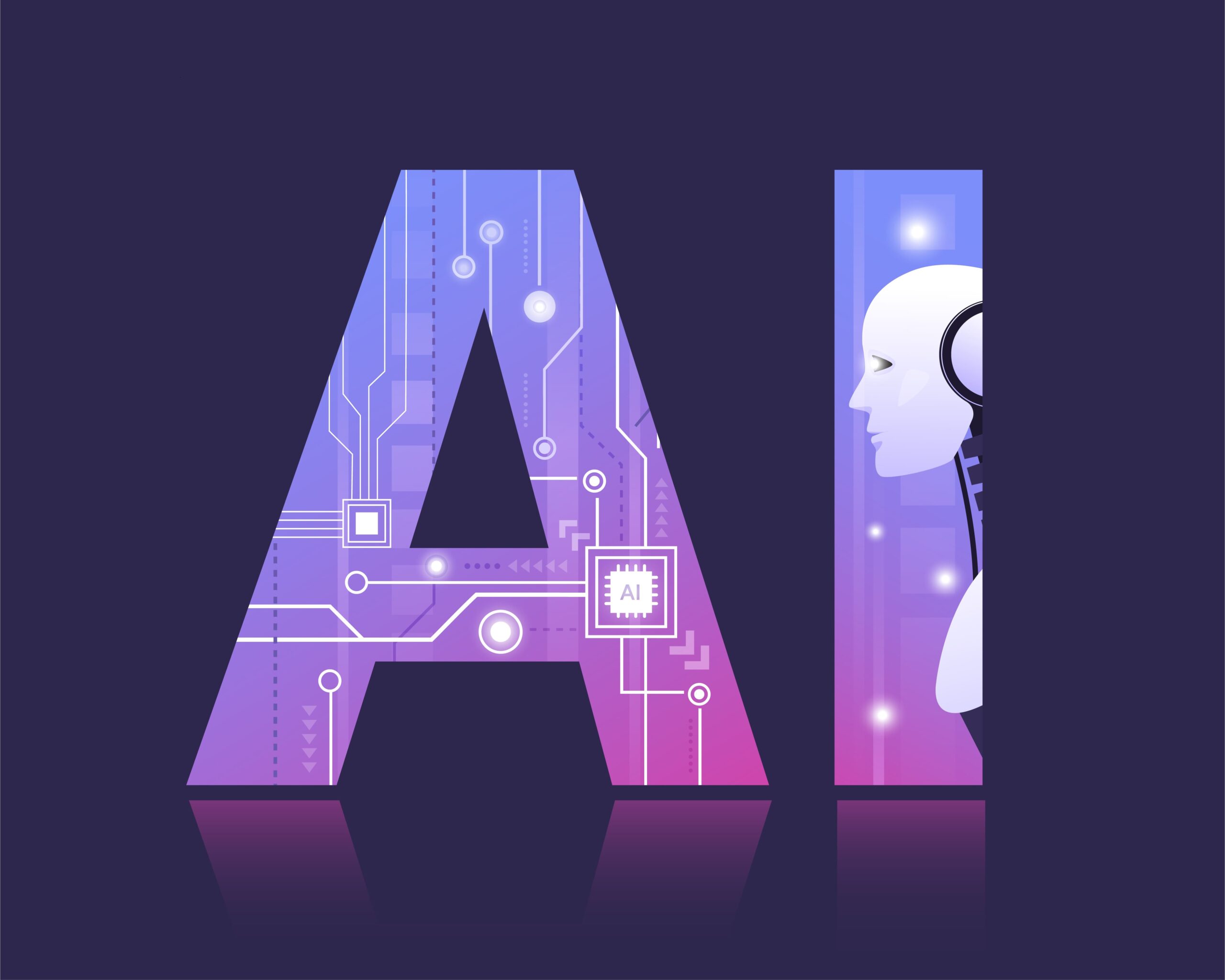Artificial intelligence is the buzzword of the year, or maybe even the entire decade. AI is revolutionizing many aspects of our daily lives, including how we approach and manage almost any type of work. Project management is no exception, as AI offers new ways to streamline working processes and enhance productivity by automating repetitive tasks, analyzing large datasets, providing real-time insights, and improving decision-making.
From strategically predicting hidden project risks to automating time-consuming routine tasks in Excel, AI in project management is changing the rules of the game. However, at the same time, AI is completely useless without knowing how to properly use it. For this exact purpose, to help understand AI better, we created today’s complete guide on what are the main benefits of AI tools in project management and how one can use them efficiently. So, without further ado, let’s dive!
What Is an AI in Project Management?
Well, we’ll skip defining AI itself, and move directly to the context of project management. Here, AI typically refers to the software that takes on tasks previously handled by human project managers. In these tasks, AI may fully replace humans, or work alongside project management professionals as a smart assistant or useful tool. Digital tools often referred to as AI can handle a wide range of project management tasks, from planning and scheduling to risk assessment and resource allocation.
In project management, AI uses complex algorithms to analyze project data, make predictions, offer valuable insights that go unnoticed by humans, and sometimes even take action instead of humans. While AI in project management can’t replicate human intuition or creativity, it excels at processing vast amounts of data quickly, identifying patterns, and providing objective, data-driven recommendations that can significantly impact project success.
The Impact of AI on Modern Project Management
AI brings both opportunities and challenges when it comes to project management. Its influence extends across various aspects of project execution, from initial planning to final delivery. Let’s explore the key areas where AI is making its mark in 2024:
Task Management: AI tools now handle complex project breakdowns, creating clear and manageable task lists. Such tools can assign tasks based on team members’ skills, availability, and past performance, significantly enhancing the team goal-setting process. These systems not only assign but also continuously adjust these assignments as project needs shift, ensuring an optimal workload distribution. As of 2024, AI can even suggest modifications to improve task efficiency, by learning from previous successful project patterns.
Communication Management: Modern AI systems act as communication hubs, filtering and prioritizing information flow. Today, AI can handle almost any communication aspect, from creating meeting minutes templates to summarizing discussions and translating messages in real-time for global teams. Some AI tools can also detect gaps in communication or potential misunderstandings, prompting team members to clarify or follow up on important points.
Risk Management: AI-driven risk analysis tools scan project data, external factors, and historical project trends to predict potential issues. They offer probability-driven risk assessments and suggest mitigation strategies. AI tools for project management can learn from each project, refining their risk prediction accuracy over time, based on your actual data.
Resource Allocation: AI now plays a crucial role in resource management, matching skills to tasks with precision never seen before. AI forecasts resource needs based on project timelines and team capacity. Advanced AI systems can even simulate different resource allocation scenarios, helping senior managers make informed decisions about hiring/training needs.
Time Tracking and Scheduling: AI-powered scheduling tools create optimized project timelines, considering multiple constraints simultaneously. For instance, they can track the time spent on tasks, providing insights into productivity patterns. Some AI systems can now predict delays and suggest adjustments to the schedule in order to keep projects on track.
Project Analytics and Reporting: As of 2024, AI can also significantly assist with analytics. It transforms raw project data into actionable insights by generating customized reports tailored to different stakeholders’ needs. Advanced AI project management software can identify trends and correlations that even the most cautious humans might overlook, offering predictive analytics about project outcomes. These tools often present data visually, making complex information easier to understand and act upon.
6 AI Project Management Tool Types for 2024
Now, to be a little less abstract, let’s see which types of AI-powered tools are at project managers’ disposal in practice.
Short disclaimer: This article explores a range of project management tools with varying degrees of AI integration, from basic compatibility with third-party solutions to advanced built-in functionalities. Our focus today is on highlighting these tools and how AI impacts each of them.
AI-Powered Task Management Tools
AI-powered task management tools streamline projects by automating task assignments, workload balancing, and progress tracking.
Asana
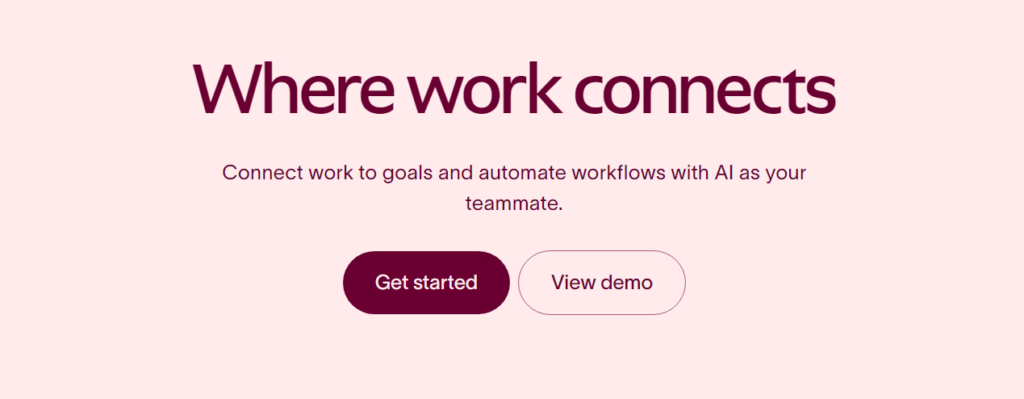
Asana uses AI to enhance project management across a variety of features. Its Smart Fields function automatically generates custom fields based on project context, while the Smart Editor suggests improvements in writing clarity and tone. Asana’s AI compiles concise task summaries while assisting in standardizing goal-setting processes. The platform can quickly create customized projects and automate workflows with AI-powered rules. These AI capabilities are integrated across all Asana plans, offering users a comprehensive and intelligent task management experience.
Trello

Trello uses a visual approach to the task management process, organizing work into boards, lists, and cards for easy project tracking. Its relatively new AI features (they were introduced at the beginning of 2024), include a smart editor for improving text clarity and an action item extractor to identify key tasks from discussions. Trello’s AI can also assist with brainstorming and generating ideas to jumpstart projects. While these AI capabilities are currently limited to Premium and Enterprise users, they represent a significant step in Trello’s development. The platform’s combination of visual organization and emerging AI support distinguishes it from other task management tools.
Sembly

Sembly with its powerful extension Semblian 2.0 is an AI tool for project management that automatically enters tasks in your task management applications, updates your knowledge base with meeting notes, highlights risks and issues, and can even automatically generate artifacts like project plans, and RAID registers, that include all the details of what was discussed in your meetings. It works with all popular video conferencing platforms like Microsoft Teams, Google Meet, Zoom, and Webex, and can automatically distill meeting flow into projects with contextually related information, allowing you to use it like ChatGPT that deeply understands you and your work. Sembly supports over 40 languages and meets GDPR and SOC 2 Type II standards.
Because Sembly learns about you and your work as you use it, it can suggest impactful next steps after meetings that take into account important aspects like your goals on the project and overall project dynamics. Users can chat with Semblian 2.0 about any past or ongoing project, drawing insights from past meetings and gaining valuable guidance from its powerful AI engine. This AI application aims to streamline task management, boost productivity, and save time across departments by dramatically reducing the time it takes to build documentation and perform manual data entry in project management and knowledge management applications.
AI-Driven Communication Tools
AI-driven communication tools focus on enhancing team collaboration by automating meeting transcription, summarizing discussions, highlighting key action items, and enhancing additional communication aspects.
Slack
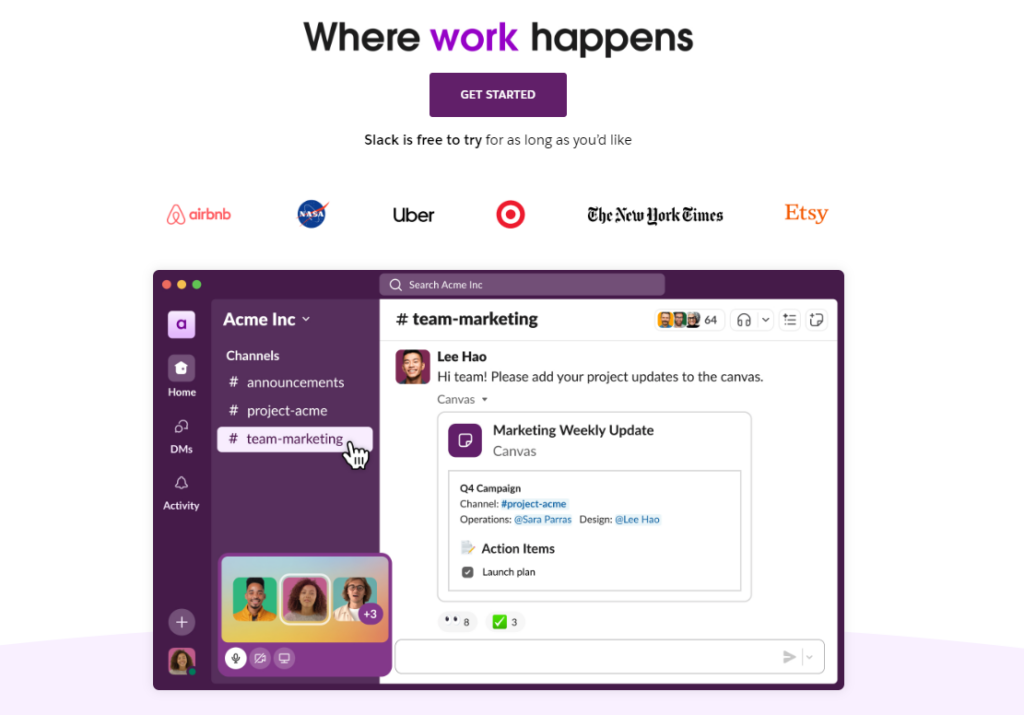
Slack is a communication platform that helps teams manage projects through channels, direct messaging, and file sharing. Its AI-powered search feature allows users to ask questions using natural language to receive targeted answers from past conversations. Slack’s AI can summarize long discussions and threads, offering quick insights into complex topics. The platform offers daily summaries of missed messages, helping team members stay informed without constant monitoring. Slack’s integration with other tools and its focus on data privacy set it apart as a secure, versatile communication hub for project management.
Microsoft Teams

Microsoft Teams is a communication platform that combines chat, video meetings, file storage, app integration for project management, and other features required for successful communication. Its AI-powered Intelligent Recap feature automatically transcribes and summarizes meeting materials, highlighting key moments and tasks based on the actual discussions. Teams offers real-time translations during calls, eliminating language barriers in projects with international teams. The platform’s Copilot integration assists users by providing insights from discussions and helping draft messages. Teams stand out due to its seamless integration with other Microsoft 365 applications, allowing teams to work on documents directly within the platform.
AI-Based Risk Management Tools
AI risk management tools optimize threat detection and mitigation by analyzing data patterns, predicting potential issues, and recommending targeted interventions across organizational processes.
RiskWatch

RiskWatch is an AI-powered tool that automates risk assessment in project management. It streamlines the identification and evaluation of potential threats across multiple organizational processes. The platform employs machine learning algorithms to analyze data and provide actionable insights to impact your business’s project management process. RiskWatch offers customizable frameworks to align with specific industry standards and regulations. Teams can easily assess risks, monitor projects, and instantly share findings via the tool’s simple and intuitive dashboard.
Predict!
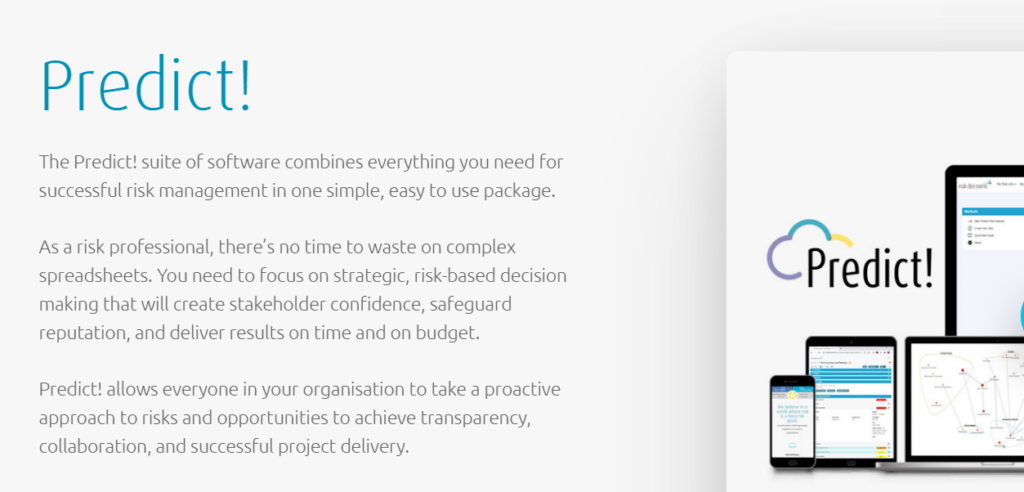
Predict! by Risk Decisions is an AI-driven project planning tool that enhances risk assessment. This tool uses machine learning algorithms to identify potential threats and opportunities in projects. The platform analyzes data from various sources to predict risks before they occur. Predict! allows teams to customize risk models to meet their specific project needs. Its real-time monitoring feature helps managers respond promptly to emerging risks throughout the project lifecycle.
AI in Resource Allocation
AI-driven resource allocation tools optimize project efficiency by handling complex tasks, such as personnel assignment, budget distribution, and asset scheduling based on availability and project requirements.
Resource Guru

Resource Guru is a cloud-based tool adept at managing and scheduling essential organizational resources. It facilitates seamless integration with AI tools, such as Bard AI via platforms like Appy Pie Automate, to boost its resource allocation capabilities. Although Resource Guru does not have AI directly integrated into the platform, the use of third-party solutions enhances the accuracy and efficiency of scheduling and tracking availability, ensuring optimal allocation of resources. The tool’s AI integration allows for smarter, data-driven decision-making processes, streamlining core tasks of project management. Resource Guru, combined with AI-based solutions stand as a practical choice for teams seeking an enhanced resource management solution.
Monday.com
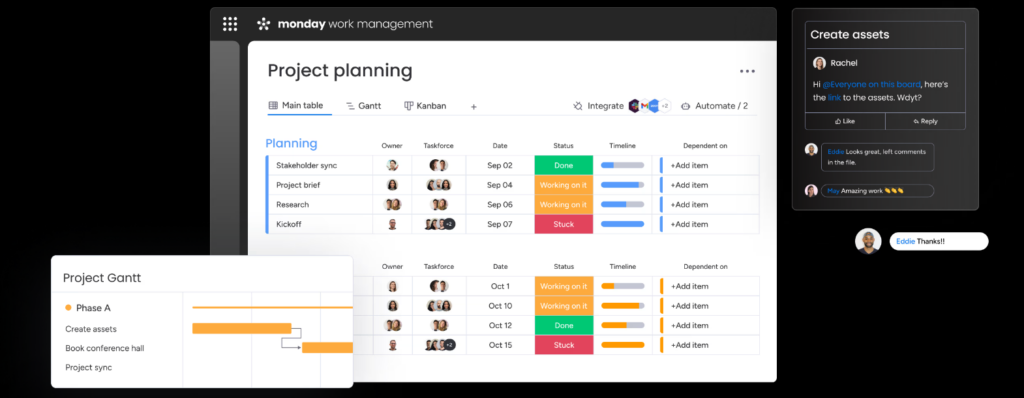
Monday.com is a project management platform that now incorporates AI for smarter resource allocation. Its AI engine automates task creation based on project goals and user input. The platform uses advanced machine learning algorithms to categorize tasks and summarize complex information. Monday.com’s Workload Dashboard helps managers balance team assignments and prevent burnout. AI integration enables automated workflows and enhances overall project efficiency and resource management.
AI in Time Tracking and Scheduling
AI-powered time tracking and scheduling tools enhance productivity by automating the monitoring of work hours, managing shifts, and creating optimized schedules. These tools analyze patterns to forecast availability, allocate tasks, and ensure deadlines are met efficiently. Tools for time tracking and scheduling often lack built-in AI capabilities but allow integration with third-party tools that significantly enhance the efficiency of the entire project management process.
Harvest

Harvest is one of the most popular tools for time tracking and scheduling in the project management landscape. It has quite a user-friendly interface that allows project managers to log hours and expenses, as well as generate invoices effortlessly. The platform integrates well with other popular project management apps. Harvest’s key features regarding reporting provide valuable insights into project profitability and team productivity. Although not fully AI-driven, Harvest still offers various automation options through tools like IFTTT, enhancing efficiency in time management.
Clockify

Clockify is a versatile time-tracking tool for project management and productivity monitoring. It offers automated time tracking that logs activities across applications and websites. The platform provides detailed reports on time spent by a project, client, or team member. Just like the previous tool, Harvest, Clockify doesn’t offer native AI but allows for seamless integration with other popular project management tools and AI/automation features.
AI for Project Analytics and Reporting
AI-driven project analytics and reporting tools provide real-time insights by analyzing project data, tracking key performance indicators (KPIs), generating automated reports, and delivering analytics-based insights to enhance decision-making and project outcomes.
Tableau

Tableau is a data analytics platform that uses AI for project management reporting and analysis. It employs generative AI to automate data preparation and exploration, simplifying complex tasks for users. The Einstein Copilot feature acts as an AI assistant, helping create visualizations and build calculated fields. Tableau Pulse delivers personalized insights by summarizing key metrics and trends using plain language. Users can easily interact with data using natural language queries, making project analytics accessible to team members at all skill levels.
Power BI

Power BI is Microsoft’s business analytics platform that integrates AI to elevate project reporting. It uses generative AI (also Einstein Copilot, similar to the previous tool) to streamline data preparation and analysis, making complex insights accessible to all users. The platform’s AI assistant helps create visualization and explore data effectively. Power BI supports natural language queries, allowing team members to interact with data without technical knowledge. Its automated summaries provide a quick overview of key metrics, enhancing project decision-making.
Benefits of Using AI in Project Management
Now that we’ve finished with the areas of project management most impacted by AI, let’s check what AI can offer in terms of strategic benefits. Besides improving decision-making and streamlining workflows across various aspects of project executions, using AI for project management offers the following benefits:
Cost and Time Savings
AI automates routine tasks like scheduling and reporting, cutting down the time teams spend on manual work. This reduces project costs by significantly optimizing existing workflows. Instead of doing mundane work, project managers can now focus on higher-value activities. This approach improves overall efficiency and helps save both costs and time.
Better Cost Management
AI tracks project spending in real time, highlighting areas where costs exceed projections. It helps identify and eliminate waste. In this way, AI ensures the budgets are used effectively and projects stay on track financially.
Improved Predictions
However, forecasting isn’t just about costs. AI can analyze past data to predict future project success rates with greater accuracy. It highlights potential risks or delays early on. This helps project managers plan ahead and avoid surprises, impacting almost any aspect of project management.
Automated Quality Control
AI can monitor and assess project outputs for quality, identifying issues as soon as they occur. This reduces the need for manual reviews and helps maintain consistency. Thus, it ensures that project standards are met without delays.
Improved Collaboration
AI tools enhance communication by organizing and sharing relevant information across teams. It ensures everyone has access to the same data, reducing the potential for miscommunication. Using AI for collaboration and communication typically strengthens teamwork and aligns goals, which is crucial for successful project management.
Faster Decision-Making
AI processes large volumes of project data quickly, providing insights to support decision-making. By avoiding the time-intensive and resource-intensive analytics stage, AI helps project managers make informed decisions without delays.
Customized Reporting
AI generates reports tailored to your project management strategy, giving teams a clear view of progress, costs, and risks. It automatically compiles and presents data in a digestible format. This improves transparency and helps stakeholders stay informed.
Scalability
AI allows project management processes to scale as the project grows, handling increased data and complexity with ease. It adjusts to larger workloads without compromising efficiency. This ensures projects can expand without facing operational challenges.
Challenges of Implementing AI in Project Management
| Challenge | Potential Solution |
| Data quality and availability | Ensure clean and accurate project data by implementing robust data governance policies and leveraging data cleaning tools to improve AI performance. |
| Resistance to change | Promote a culture of openness to new technologies through training programs and clear communication about the benefits of AI. |
| High implementation costs | Begin with small-scale AI projects to prove value and gradually scale AI initiatives, securing buy-in for future investment and reducing financial risks. |
| Integration with existing tools and solutions | Ensure interoperability by selecting AI tools with flexible APIs and compatibility with current project management software, or adopt AI platforms designed for seamless integration. |
| Skill gaps in AI technology | Consider hiring AI specialists to support the project management team during the transition or upskill your existing employees through AI-focused training programs. |
| Security and privacy concerns | Implement strong data encryption protocols and adhere to regulatory standards to protect sensitive data when deploying AI solutions. |
| Over-reliance on AI for decision-making | Utilize AI as a decision-support tool rather than a decision-maker, ensuring human oversight and judgment remain central to project management. |
| Lack of trust in AI outputs | Enhance transparency by implementing explainable AI (XAI) techniques, which allow project managers to understand how AI makes predictions and recommendations. |
| Scalability of AI solutions | Choose solutions that offer modularity and scalability from the start, ensuring they can be expanded or adjusted based on the size and complexity of the projects. |
How to Implement AI in Your Project Management Process
Implementing AI in your project management workflows can significantly enhance the efficiency of the process. Follow these steps to integrate AI smoothly:
- Assess current processes: Identify areas in your project management that require improvement. Determine which tasks are the most repetitive and time-consuming.
- Set clear objectives: Define specific goals for AI implementation. Align these objectives with your overall project management strategy.
- Select the right AI tools: Research AIs that address your identified needs. Select tools that seamlessly integrate with your existing project management practices.
- Start small: Begin with a pilot project or a single department. This allows you to test the AI implementation on a smaller scale.
- Train your team: Provide comprehensive training on the new AI tools.
- Collect and prepare data: Gather relevant historical project management data. Ensure data quality and consistency for accurate AI analysis.
- Implement and monitor: Roll out the AI tools across your project management processes. Monitor their performance and overall impact on project results.
- Gather feedback: Regularly collect input from team members using the AI tools. Use this feedback to refine the implementation process.
- Optimize and expand: Based on initial results, optimize the use of AI in your current processes. Gradually expand AI implementations to other areas of project management.
- Stay updated: Continuously evaluate and update your AI tools as needed.
Future of AI in Project Management
AI has already changed project management. However, the future of AI promises to change the way teams plan, execute, and deliver projects even more.
AI will likely evolve to deliver more accurate predictive analytics, allowing project managers to foresee and mitigate risks with greater precision. Advanced natural language processing may enable AI assistants to participate in team meetings, offering real-time insights and suggestions based on project data and historical patterns.
As AI technology continues to advance, we may see the emergence of fully autonomous project management systems. These systems could handle routine tasks, decision-making, and resource allocation with minimal human intervention. However, the human touch will likely remain crucial for creative problem-solving, stakeholder management, and strategic thinking. The key to success in the coming years will lie in finding the right balance between AI capabilities and human expertise to drive project success.
FAQs
What is the role of artificial intelligence in project management?
AI for project management uses machine learning to automate tasks and make predictions. It helps teams work more efficiently, reduce the amount of routine tasks, and make better decisions.
Will AI replace project managers?
No, AI is a tool to support project managers, not to replace them. AI handles routine tasks, allowing managers to focus on strategy and team leadership.
How to use AI for project management?
Start by identifying repetitive tasks that AI can automate, like scheduling or data analysis. Implement AI tools that integrate with your current project management software. Gradually expand AI use to more complex tasks like risk assessment and resource allocation as your team becomes comfortable with the technology.
What are the best examples of AI in project management?
There are many examples of AI tools useful for project managers. We wrote an entire article about tools, such as Asana, Trello, Semblian 2.0, Slack, Microsoft Teams, RiskWatch, Predict!, Resource Guru, Monday.com, Harvest, Clockify, Tableau, and Power BI are particular examples of tools for project management and AI.
What is the current state of AI in the project management market?
The AI project management market is growing rapidly, with new tools emerging regularly. Major software companies are integrating AI features into their existing project management platforms. While adoption is increasing, many organizations are still in the early stages of implementing AI in their project management processes.
What types of projects benefit most from AI?
Complex projects with large datasets benefit most from AI. It’s particularly useful in software development, construction, e-commerce, and research projects.
How does AI integrate with existing project management tools?
Many AI tools offer APIs for easy integration. They can work alongside other popular project management software.
